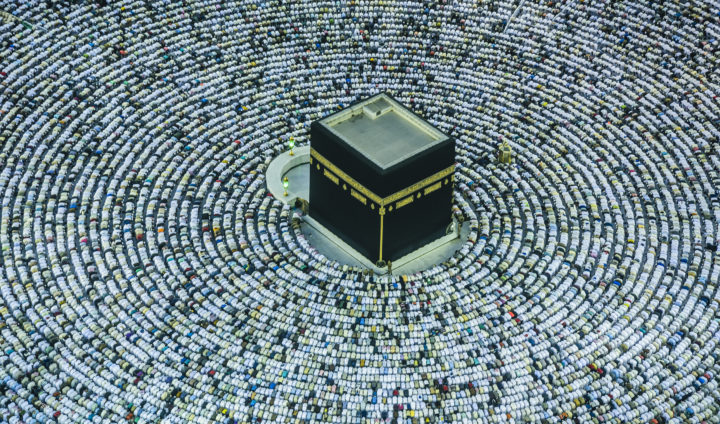An investigation by Middle East Eye reveals that British Muslims may face a waiting period of up to 10 years before being able to participate in the Hajj. This is due to a significant reduction in the number of slots allocated to UK pilgrims by Saudi Arabia. Under a newly implemented system by the Ministry of Hajj and Umrah, this year’s quota for the UK is expected to be around 3,600, a sharp decrease from the previous figure of over 25,000 prior to the Covid-19 pandemic.
With just weeks remaining before the Hajj, uncertainty surrounds the final number of allocated places. Some individuals who have booked and paid for Hajj packages through the new system are still awaiting confirmation of their participation.
To address this issue, members of the All-Party Parliamentary Group (APPG) on Hajj and Umrah, led by Labour MP Yasmin Qureshi, plan to meet the Saudi ambassador in London next week. Their aim is to request the restoration of the pre-pandemic quota levels. The APPG held an emergency meeting in parliament to discuss the situation, following a visit to Saudi Arabia in February where they met with officials from the Ministry of Hajj and Umrah.
During the meeting, the delegation was informed that the new system would align the UK’s Hajj quota with that of Muslim-majority countries, resulting in a quota of approximately 3,600, down from the 25,000+ pre-pandemic figure. The delegation urged the ministry to reconsider this decision, arguing that the UK had consistently met and surpassed its Hajj quota. They expressed concerns about the adverse impact of the reduction, as it could result in British Muslims having to wait between five and ten years to fulfil their religious obligation. Additionally, they raised concerns about the fairness and transparency of the Hajj application process.
The Hajj holds great religious significance for Muslims, who are required to participate at least once in their lifetime if they are physically and financially able to do so. This year’s Hajj is scheduled to take place from June 26th to July 1st.
Rashid Mogradia, CEO of the Council for British Hajjis, an organisation that supports the APPG, stated that Yasmin Qureshi will engage with Saudi authorities to address the challenges faced by British Muslims using the new booking platform. They will also explore the possibility of expanding the quota to pre-pandemic levels in order to meet the demand.
The exact criteria and data utilised by the Saudi government to calculate the quota for western countries remain unclear. While Muslim-majority countries typically receive a quota of one place per thousand Muslims in their population, the specific figures can vary based on agreements between Saudi Arabia and individual countries.
The concerns regarding the quota arose following the launch of the Nusuk booking system by the Ministry of Hajj and Umrah. This system replaced the longstanding practice of local travel agencies organising Hajj tours for western pilgrims. Some British pilgrims reported difficulties in booking packages through the Nusuk system, encountering messages indicating that the “country capacity is full” for the UK.
During the emergency meeting, the APPG members also expressed their intention to address concerns about the Nusuk system with the Saudi ambassador. Naz Shah, Labour MP for Bradford West, the constituency with the highest Muslim population in the UK, shared that she had previously raised issues about Nusuk with the ambassador.
The Hajj pilgrimage is one of the largest religious gatherings globally, attracting 2.5 million pilgrims. After three years of restrictions due to the pandemic, Saudi Arabia announced that there would be no limit on the number of pilgrims attending the Hajj this year. Prior to the pandemic, around 25,000 Muslims from the UK participated in the Hajj annually. However, in 2022, when the pilgrimage was scaled down to one million pilgrims worldwide from the pre-pandemic total of 2.5 million, the UK quota was reduced to 12,348.
It is worth noting that last year, Saudi Arabia ended the use of travel agencies for Hajj arrangements and introduced a new system where western pilgrims had to book through a company called Motawif, similar to Nusuk. Some pilgrims who used Motawif complained about downgraded packages, being left without hotel rooms just days before the Hajj, and experiencing difficulties in remote locations.
The APPG used their meeting with the Ministry of Hajj and Umrah as an opportunity to voice their concerns about the Motawif system and called for the processing of refunds for pilgrims whose packages were downgraded.







